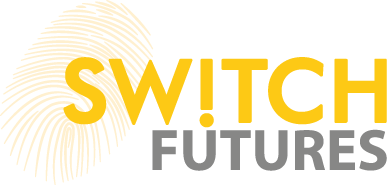In today’s world, we’re accustomed to providing feedback on everything we use or buy, from rating an Amazon delivery to evaluating an Uber driver. A lot of businesses are collecting data. But this isn’t always a priority for charities.
They often focus on the hard work of helping people and only later ask for feedback, which then gets filed away. Many non-profit organisations can’t afford to slow down and reflect on their work and the data they gather. We need to change this mindset.
Collecting and analysing data is a crucial part of our charitable work and the programme delivery we are funded to do. It’s very important. Good data helps us set goals, track progress, and make informed decisions on how best to help individuals and families. It helps us understand the root causes of issues and identify the most effective methods to address them.
We also need to demonstrate the impact of our work by providing hard evidence, not just by doing the work. It’s through showing this impact that we can raise further support and keep up programmes going. It’s vitally important.
Data allows us to improve and update our programmes. Recently, we reviewed the impact of our SW!TCH Futures programme, and the results were impressive. Good data can reveal insights we might not have known.
LifeLine is dedicated to helping young people and families dealing with isolation, mental health issues, and the risk of violence. Over the years, LifeLine has delivered various support programmes to address these needs. SW!TCH Futures is one of these programmes and we’re excited to share some key data from our review of its impact.
SW!TCH Futures targets young people in schools, aiming to boost resilience, enhance their self-esteem, and ensure young people carry on receiving an education. The programme is delivered by Youth Development Workers who acts as positive role models. They support young people through one-on-one mentoring sessions, workshops, and after school positive activities.
This impact review demonstrates that the programme has made a significant difference in supporting at-risk young people. LifeLine has continued to improve the programme by collecting and analysing data and refining its approach. This is to ensure that LifeLine Projects programmes are capable of adapting to changes and evolve according to demand. LifeLine encourages a flexible approach that embraces change and innovation.


SW!TCH Futures is a programme designed to help young people build a better future. It targets those at risk of poor mental health, criminal exploitation, and educational exclusion. Each year, the SW!TCH Futures team supports over 500 young people. The programme provides one-to-one mentoring in schools and delivers a variety of positive group activities in the community.
Enhancing wellbeing
The wellbeing of young people involved in the programme has shown marked improvement. Notably, those in the lowest 10% of wellbeing scores experienced the most substantial gains, highlighting the programme’s effectiveness in supporting the most vulnerable students.
The Warwick-Edinburgh Mental Well-being Scale (WEMWBS) is a scale of 14 positively-worded items used to assess mental wellbeing. Developed by Warwick and Edinburgh Universities, it enables the measurement of mental wellbeing in the general population and the evaluation of projects and policies aimed at improving mental wellbeing.
Average change in WEMWBS score
Absolute change in WEMWBS score recorded at start and end of mentoring.
Average percent increase in WEMWBS score
Percentage change in WEMWBS score over course of mentoring grouped by initial score.
Mentoring has helped me by supporting me and my emotions and help me to control them. My youth worker has also been someone I can talk to about anything and will help me with any problems and help me overcome things I couldn’t on my own.
Attendance
The SW!TCH Futures programme has significantly contributed to maintaining or enhancing school attendance among young people. Our data reveals that 66% of young people that took part reported either sustained or improved attendance rates by the end of their time with us.
Change in level of attendance
Percentage of young people who ended mentoring with the same or greater levels of attendance.
If it wasn’t for you, I wouldn’t be here or doing what I’m doing now. You built my music career from Year 8 and now, step-by-step, I’m meeting the big guys in the musical industry. You influenced me to keep my head down and keep pushing as the outcome will be progress, reaching goals, and more opportunities. So thank you!
Improving behaviour
Our findings indicate that one-to-one mentoring and engaging positive activities have positively impacted student behaviour. For students taking part in SW!TCH Futures, we’ve seen a 21% reduction in the number of inclusions given to young people, and a 22% reduction in the number of times they were excluded.
Change in incidence of inclusion/exclusion
Percentage change in number of inclusions and exclusions issued to young people.
Peter was referred by his secondary school to the SW!TCH Futures mentoring programme. He was mentored on a one-to-one basis for a whole year during term time as a vulnerable individual with a sibling who had a history of involvement in serious youth violence. As a young person, Peter has been chased and apprehended by gang members, and grew up in poverty.
Peter was anxious and lacked confidence, so our mentoring sessions served as a safe space where he felt comfortable opening up about adverse childhood experiences, academic wins, worries, and his sports career development. I believe Peter’s trust was gained through genuine kindness and compassion shown to him, as well as reflective and active listening skills employed in our mentoring sessions.
To build his confidence, Peter was advised to focus on his academic strengths and positive activities which contribute to personal development. There were regular check-ins on his mental health and social lifestyle. Through this, he was made accountable and provided with feedback, helping him stay positive and feel less anxious. Peter was assured that he could take on anything and succeed. He was also guided to positively identify triggers that activated certain emotions.
Through SW!TCH Futures, this amazing young person gained confidence to strive for his dreams and believed that he could achieve whatever he put his mind to. When our time together came to an end, he no longer experienced high levels of anxiety and had started on a path towards a career in basketball. His transformation was inspirational; he has come so far just by changing his mindset.
Peter is doing really well now. He was invited take part in a competition overseas. I am so proud of this young man and feel pleased to be a part of his incredible journey.


Itoro Victor-Akpan
Youth Development Worker



